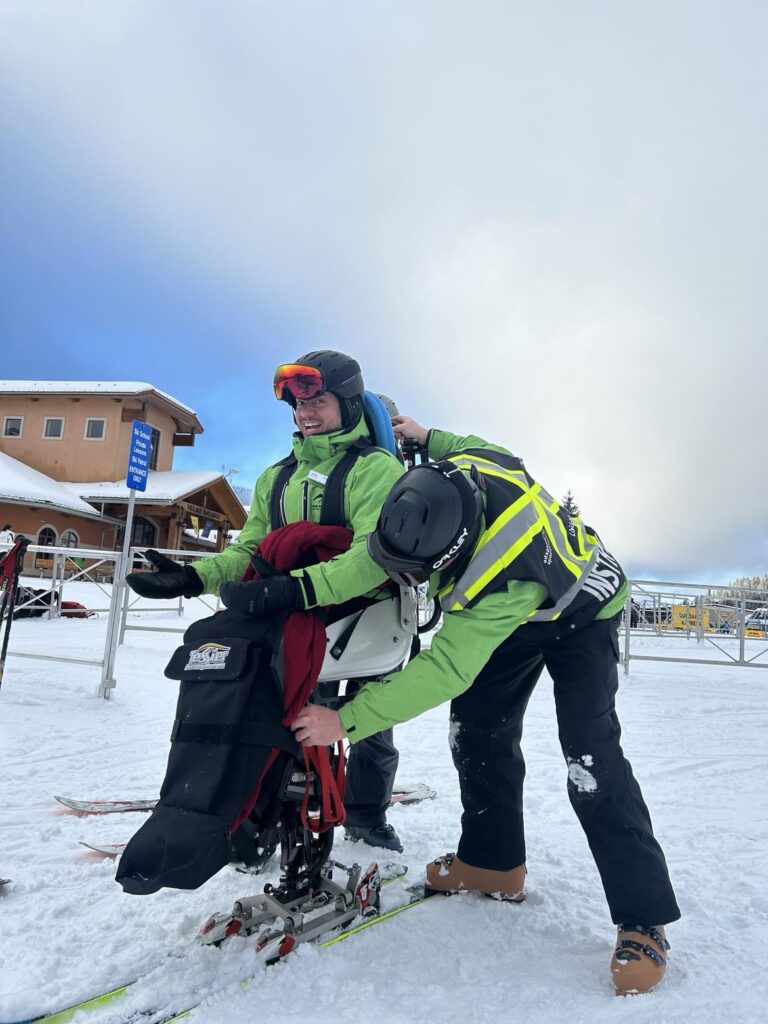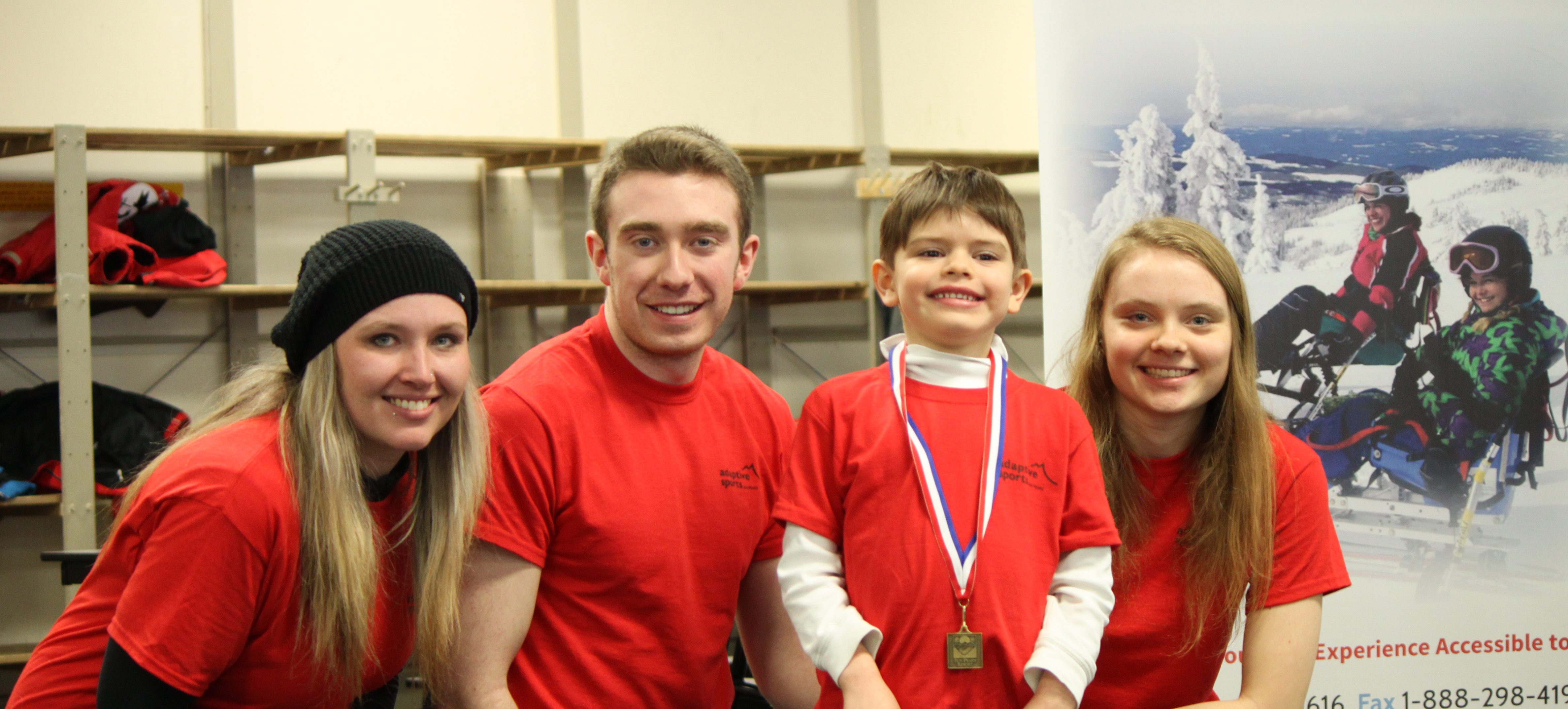Frequently Asked Questions
FAQ for Instructors
How good a skier/snowboarder do I have to be to teach with the program?
You do not need to be an expert. You should feel confident skiing/boarding down a blue run. You will need to be able to help balance your student and provide support as they may fall from time to time. 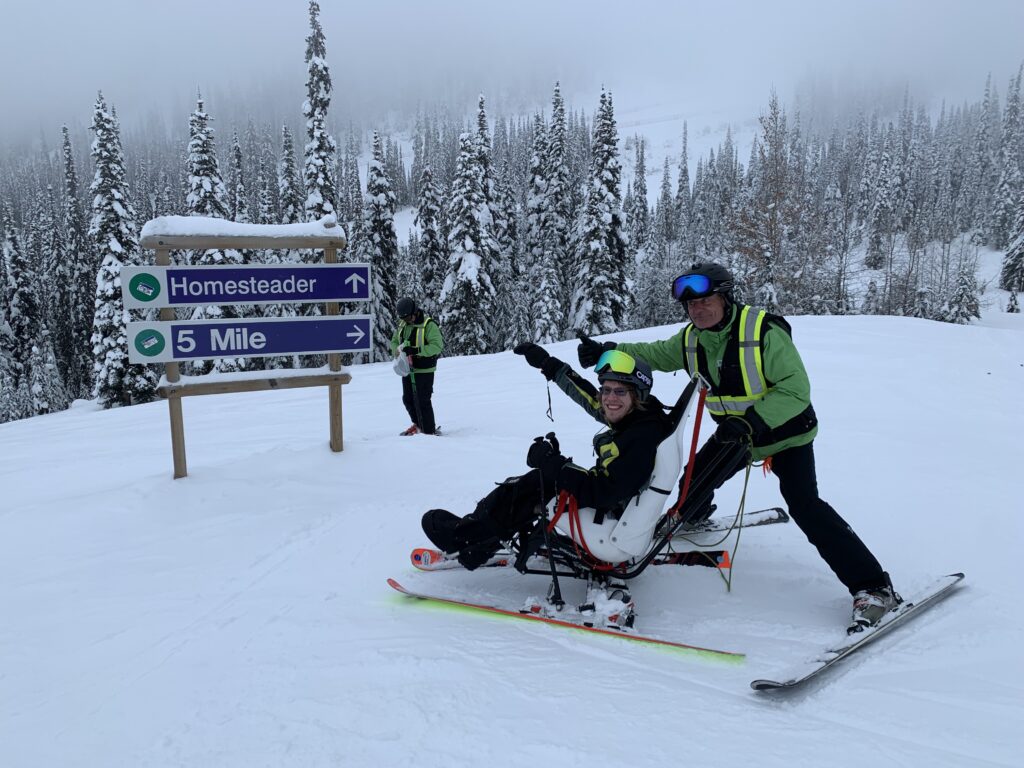
What if it’s too cold for my lesson?
ASSP has a cold weather policy of cancelling lessons when the temperature is 15 degrees (celsius) below zero and minus 12 degrees for sit ski lessons. This is to ensure your safety and comfort. The decision to cancel lessons due to expected cold temperatures is made the day before at 4pm following consultation with the weather reports. Students and Instructors will be notified soon after 4pm. Make up lessons are difficult to arrange but can be discussed on an individual basis.
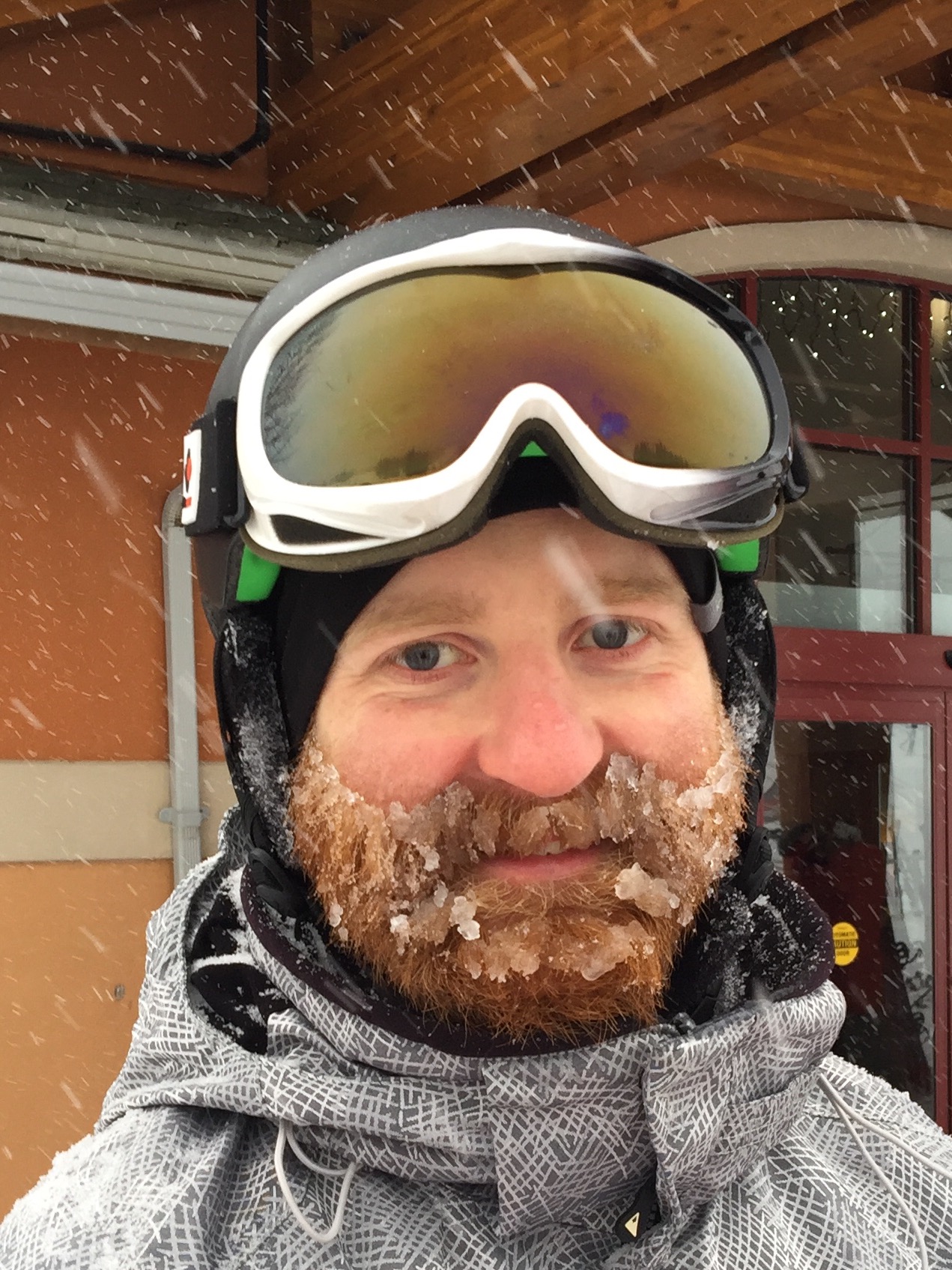
Will I get a season’s pass for volunteering as an Instructor?
ASSP Criteria to be considered for a Season’s Pass:
- Successful completion of the CADS Level 1 Instructor Course
- A commitment to provide 100 hours for the season on snow
- A commitment to volunteer for a full day on either a Saturday or a Sunday throughout the season whether lessons are on or not (training is offered on student free days and lunch time Saturdays and Sundays once lessons start in early January)
- A commitment to attend ASSP Orientation annually, and ASSP or BCAS training events
- A commitment to support the ASSP Program in any way you can if asked
- An understanding that passes are not transferrable and will be lost if the volunteer is unable to fulfill their commitment.
- An understanding that the pass will be revoked should the volunteer leave the Program.
Adaptive Sports at Sun Peaks gives preference to returning Instructors for passes and for all others, will review each request individually depending on your commitment, experience and ability to fulfill the expected 100 hours. Instructor hours are logged for every lesson, training activity, courses
Thank you for your understanding that there are very limited passes available and know that ASSP will endeavour to support your application in any way we can. Please contact us at adaptivesportsatsunpeaks@gmail.com to discuss further.
What do I have to do to become a volunteer Instructor?
You will need to register online (see volunteering…instructors), complete the online criminal record check and complete the online membership for Canadian Adaptive Snowsports (CADS),BC Adaptive Snowsports (BCAS) & ASSP at a cost of $60 per year. Next, you need to successfully complete the CADS (Canadian Adaptive Snowsports) Level 1 Certification Course at Sun Peaks, and if you are not CSIA or CASI certified, attend a 6 hour prerequisite CSIA/CASI training day with the Sun Peaks Snow Sports School. Please see our application form under ‘volunteering’.
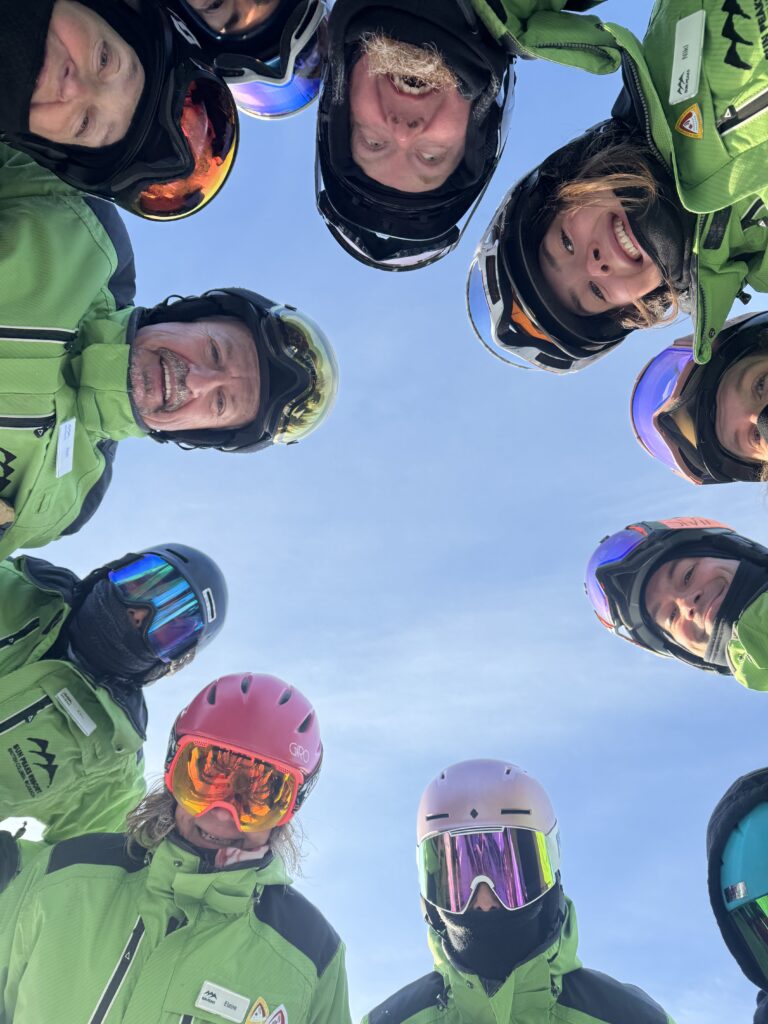
What does the CADS training cover?
The training covers: skiing and riding methodologies with adaptations for teaching people with disabilities, hands on experience using adaptive equipment, information on different disabilities, and teaching practice.
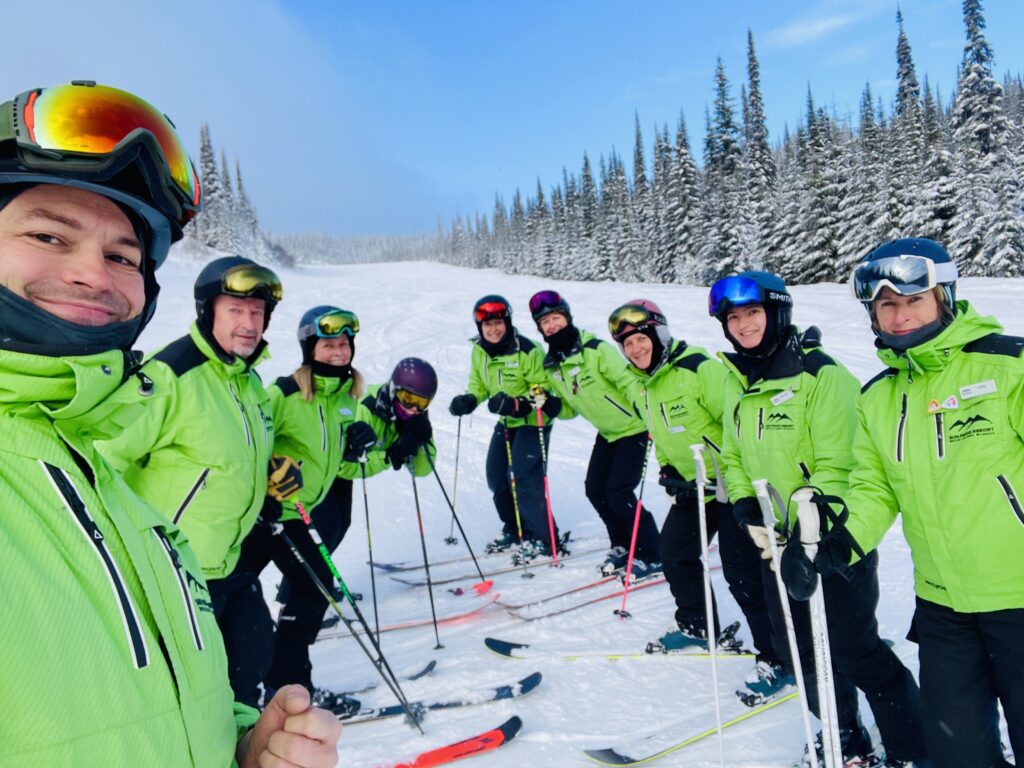
You must be 15 years or older.
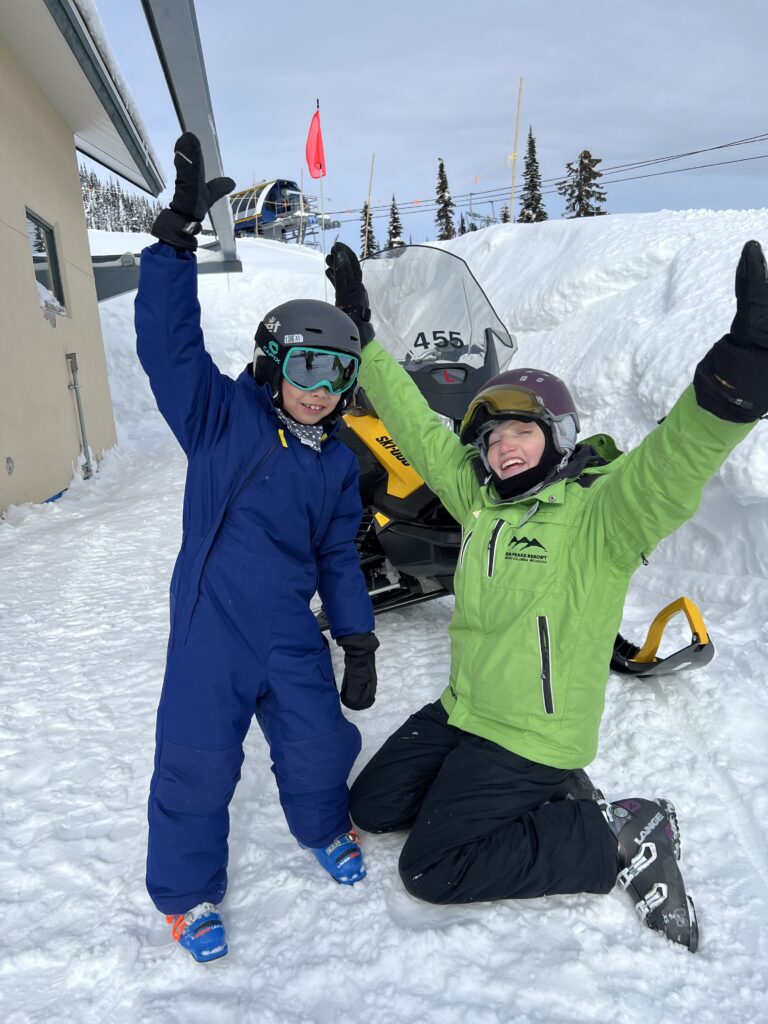
If I do not ski or snowboard, how else can I get involved?
We have many volunteer opportunities on various committees requiring member involvement; i.e. social, fundraising, PR and marketing, administration, web maintenance, photography, photo archiving, and special events committees. You may wish to nominate for a position on the ASSP Board of Directors at the AGM in September each year. Let us know if you have particular interests, strengths or talents.
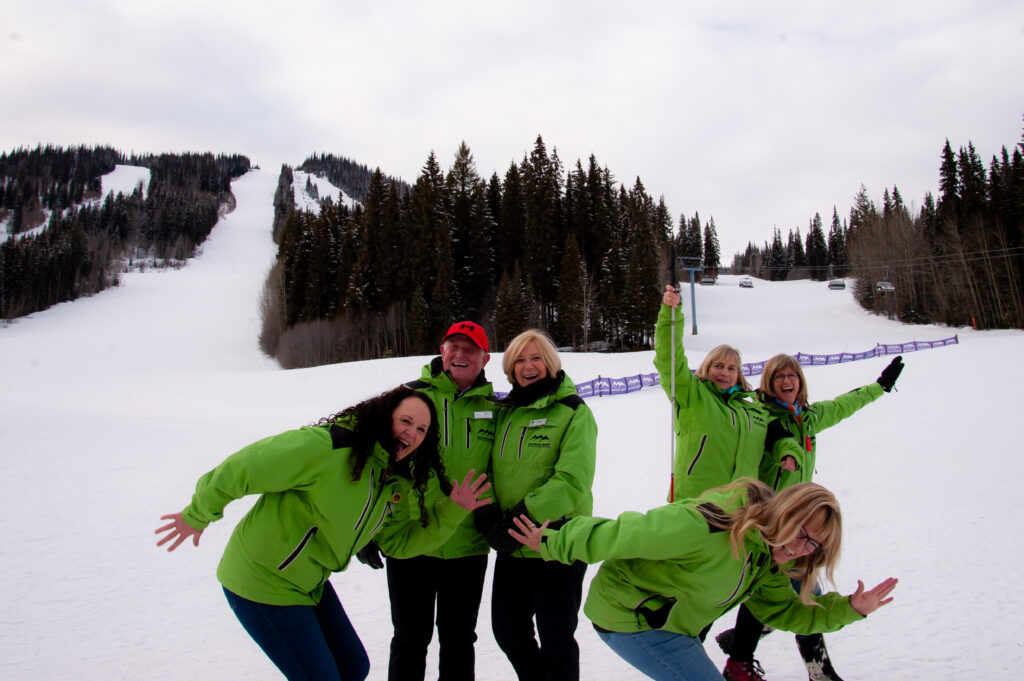
What fees are required and why do I have to pay to volunteer?
The fees for volunteering are highly subsidised and kept to a minimum. We continue to ask volunteers to pay their fees as this demonstrates commitment to our students, programs and organisation. We do not wish to create barriers or hardships for new volunteers. If you have further questions or concerns, please email ASSP. adaptivesportsatsunpeaks@gmail.com
FEES:
$57 – annual BCAS/CADS membership fee: this includes liability insurance coverage ($2M) for you while you are participating in any activity associated with ASSP & BCAS, a newsletter telling you what else is happening around the province, and training workshops with BCAS at the start of each season.
$11 – annual fee to be an Adaptive Sports at Sun Peaks member. Membership assists in the growth of our Program and also entitles you to a vote at our AGM.
What do all the acronyms mean?
CADS: is our national body, and it is through CADS that we can conduct certification courses. They set standards, policies and protocols for all provinces.https://www.cads.ski/
CSIA: Canadian Ski Instructors Alliance. This is the national governing body for ski instruction. CADS instructors follow CSIA teaching methodology, using adaptive techniques and equipment with their students as needed. CADS is now partnered with CSIA.
http://www.snopro.com
CASI: Canadian Association of Snowboard Instructors. The national governing body for snowboard instruction. CADS instructors follow CASI teaching methodology, using adaptive techniques and equipment with their students as needed. CADS is now partnered with CASI.
http://www.casi-acms.com
BCAS: BC Adaptive Snowsports refers to our provincial body. They oversee and provide support for all 8 zones province wide.
https://www.bcadaptive.com
ASSP: Adaptive Sports at Sun Peaks is the local Program based at Sun Peaks, BC.
http://www.adaptivesportsatsunpeaks.org/
What does CSIA/CASI have to do with CADS?
The CADS teaching and skiing/boarding techniques are based on CSIA (Canadian Ski Instructor’s Alliance) and CASI (Canadian Association Snowboard Instructors) methodologies. CADS is now partnered with both organisations. Once a basic understanding of CSIA/CASI methodology is established, we can modify the techniques and use adaptive equipment as necessary, according to the student’s ability.
If you do not already have a CSIA or CASI certification you must take the 6 hour on snow preparation session prior to the CADS Level 1 Course to learn the terminology used when teaching a lesson, and to receive your personal ski/riding improvement strategies.
Subject to funding and approval, opportunities are available for you to attain Level 1 Instructor certification with CSIA or CASI throughout the season.
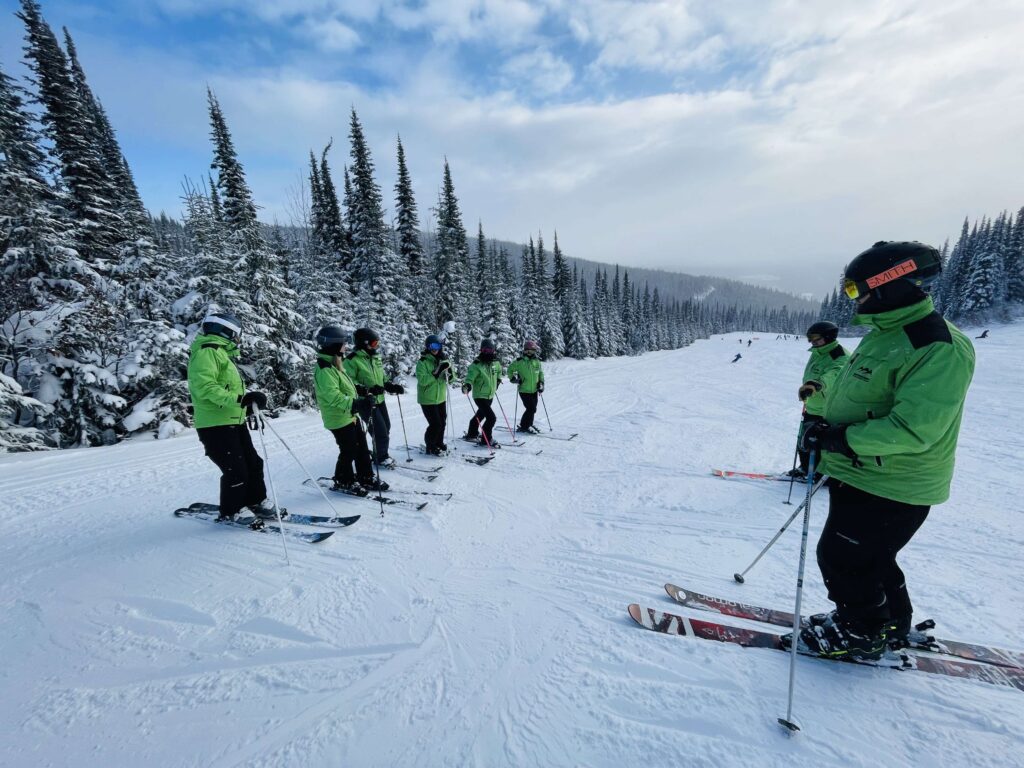
What time commitment does volunteering with ASSP involve?
The first commitment is that you complete the CADS Level 1 Instructor certification. This means 2 full days of on-snow training and one evening of classroom training the night before the on snow portion. The on-snow training usually takes place on weekend days and must be completed as one Course. If you do not already have CSIA or CASI Level 1 certification, (or your certification is more than 5 years old), you will be required to participate in 6 hours of CASI/CSIA teaching methodology on-snow training with the Sun Peaks Sports School prior to the CADS Course. ASSP will arrange and cover the costs of this 6 hour day. We endeavor to provide the volunteer lift pass should you be in the ‘100 hour club’ just prior to these training days but this is at the discretion of the Resort LLP.
After you have received your CADS Level 1 certification, the minimum commitment required to be considered for a free season’s Volunteer pass is 100 hours/20 days on-snow volunteering in the 5 month season.
Lessons are 2 hours in duration with 30 minutes allocated pre and post lesson to read up about your student, and complete the lesson log following the lesson. This means your total lesson time is 3 hours and will be recorded as such. Lessons are: 9-11am and 1-3pm. Lunch time Instructor training sessions are held Saturdays and Sundays 12-12.45pm and counted towards your 100 hour commitment should you have a complimentary lift pass.
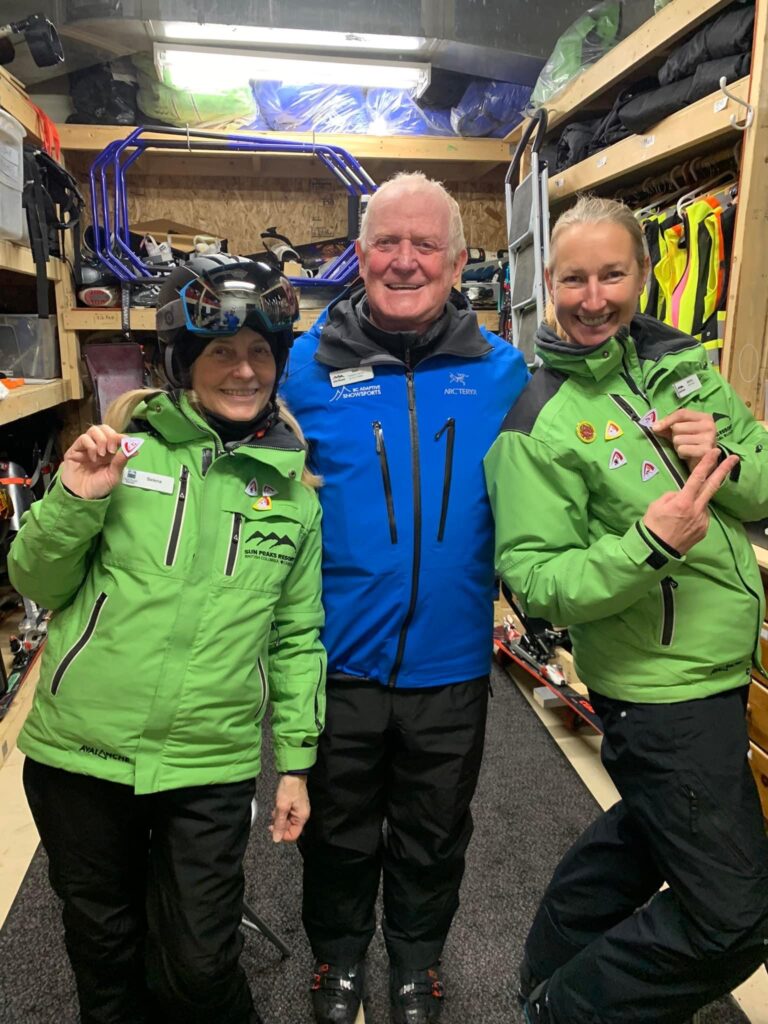
What if I cannot make one of the teaching sessions?
We aim for 100% attendance from all instructors and students. However, on occasion, situations arise making it necessary to miss a lesson. If this is the case, you will be expected to arrange for another volunteer to cover your lesson and advise the Manager asap. For those Instructors supplied with a Volunteer season lift pass, the Sun Peaks Resort expects a 100 hour commitment for the season which amounts to approximately 1 day per week for the season. Training is included in this 100 hour commitment. Make up lessons for students is difficult to arrange and and any discussion with the family/student needs to be delegated to the ASSP Manager.
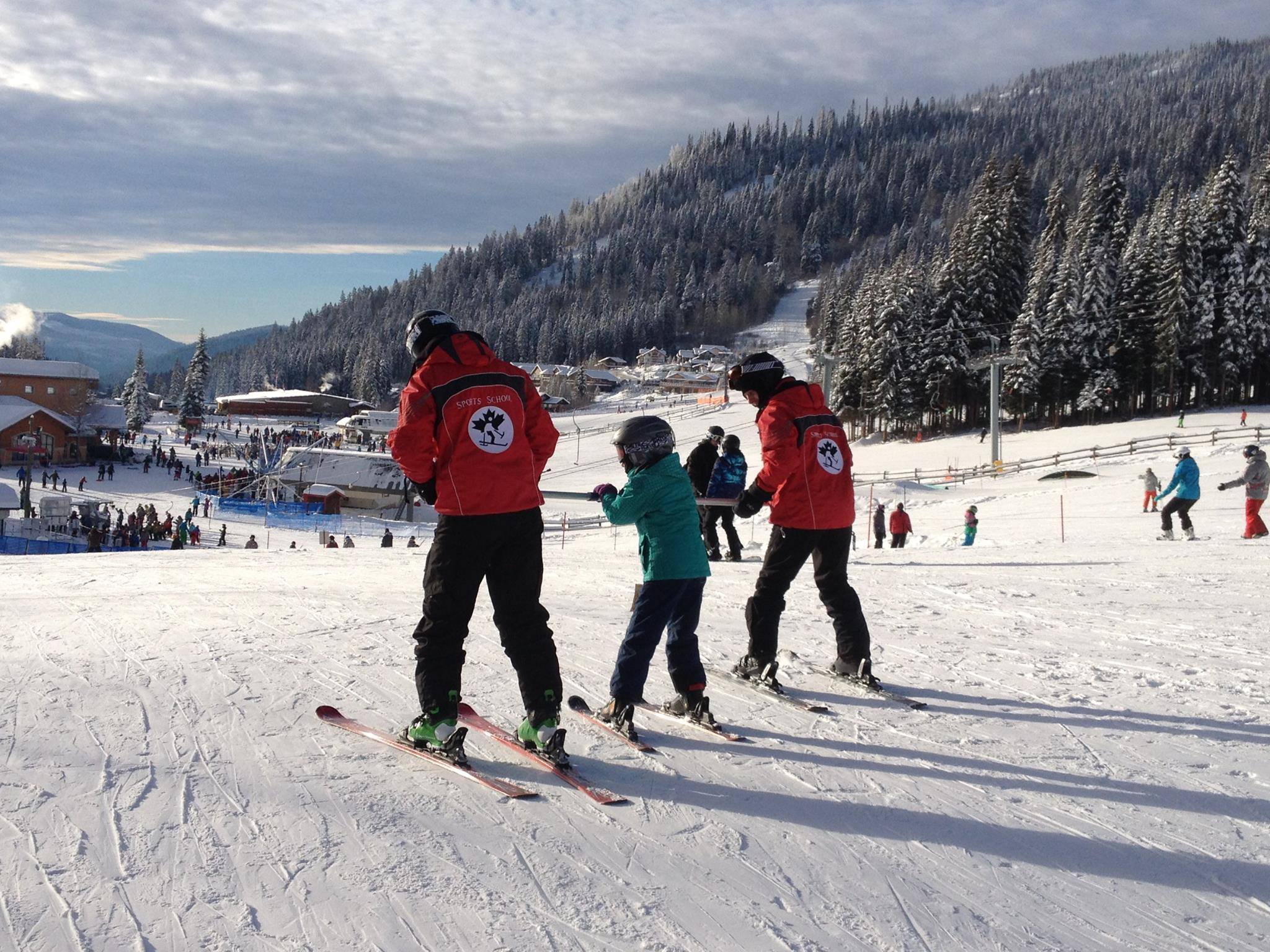
I don’t know anything about people with disabilities. Can I still volunteer?
Yes. We provide comprehensive training initially through the 3 day CADS Level 1 Instructor Course and throughout the season. This will increase your confidence to work with people with a variety of disabilities. The ASSP Scheduling team will provide information specific to the disability of student/s you are working with so you can prepare for your lesson. The best way to learn is to get out and do it as well as learn from the experienced instructor in your lesson ‘team’ as well as advice from parents/care givers.
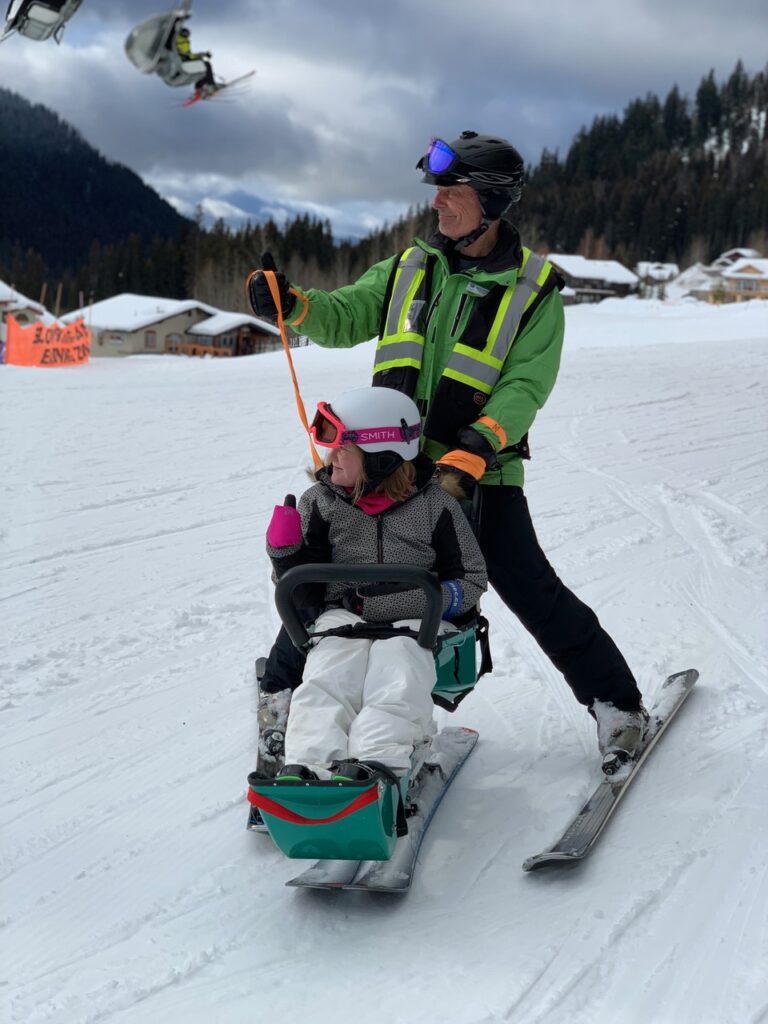
How many students will I have?
The ASSP Scheduling team matches two instructors with one student and all attempts are made to stay with that student for their lesson set. This 2:1 ratio ensures quality lesson support and a fun time for everyone where the focus remains ‘safety, fun and learning’. Some students/guests may require additional instructors depending on their needs or one if their skiing/riding is advanced.
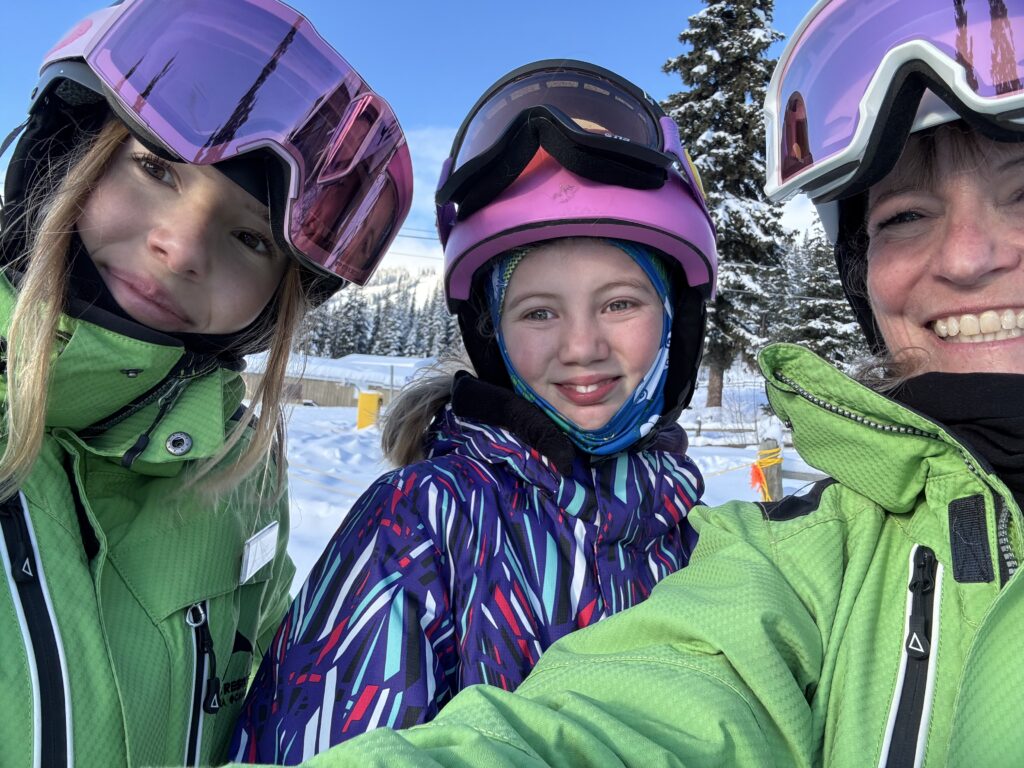
Do I have to have my own equipment?
Yes. You are responsible for bringing your own equipment that meets current safety standards. Helmet use is mandatory for all instructors and students/guests. You will be provided on loan a full uniform consisting of pants and jacket. Please reach out if your current equipment might not meet the safety standards. Phone the ASSP Manager on 250 572 0616.
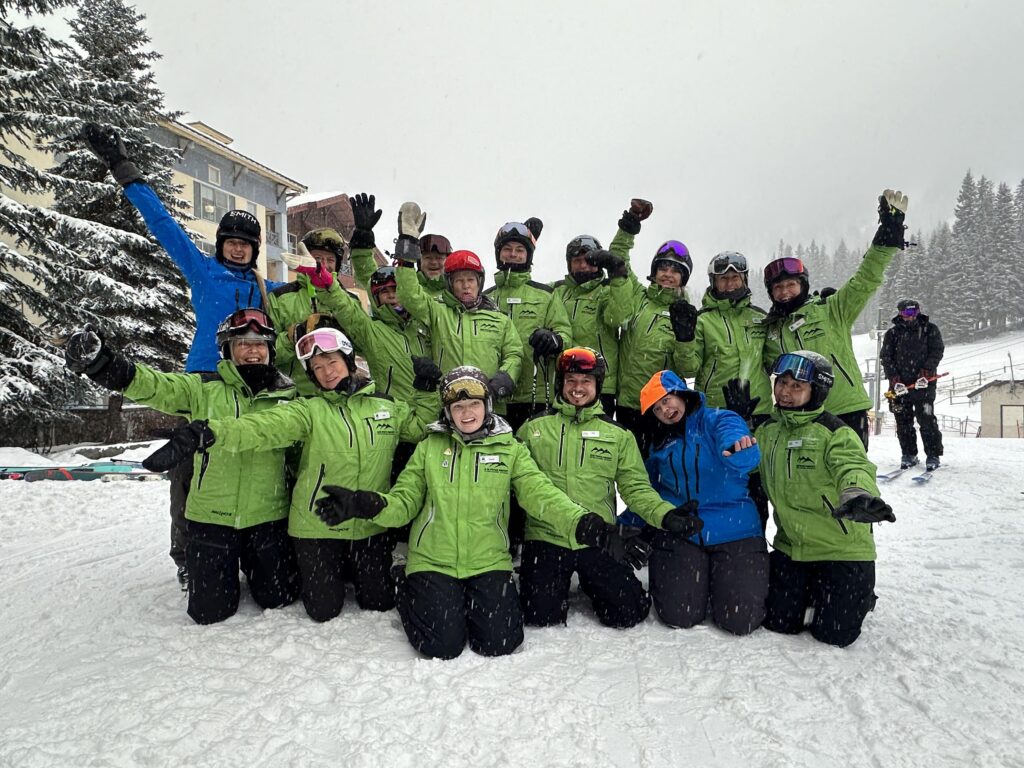
Do I provide my own transportation?
Yes. You are responsible for your own transportation to and from the hill. Many volunteers have been able to work out a carpool arrangement and there is a closed Facebook Page for Instructors to communicate with each other, as well as via email.
